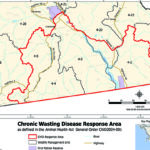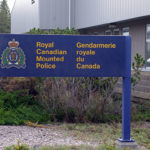Home »

Today is World Water Day
Today, March 22, World Water Day turns 25 and Living Lakes Canada is joining countless organizations, governments and people around the world in focusing attention on the importance of water.

“For us, it’s all about watershed stewardship,” said Heather Leschied, Program Manager for Living Lakes Canada. “We encourage our communities through building knowledge and awareness, to take a pro-active approach and protect the healthy, intact watersheds we have in the Columbia Basin.”
In Canada, a week-long celebration of water from coast to coast is held annually in the third week of March to coincide with World Water Day. Canada Water Week, as it’s known, was founded by Living Lakes Canada in partnership with the Canadian Freshwater Alliance, the Gordon Foundation and the World Wildlife Fund Canada. Across the country groups and individuals are encouraged to get involved by organizing or participating in fun and educational water-related events.
Nurturing a water stewardship ethic is one of the overarching goals of Living Lakes Canada, which helps communities learn to value and protect their watersheds through shoreline conservation, groundwater monitoring and stewardship, CABIN monitoring and training (measuring freshwater ecosystem health with federally standardized methods), and cross-sector engagement.
As world-wide water issues continue to grow, the importance of watershed protection can’t be overstated.
Dr. Hans Schreier, a professor emeritus with the Faculty of Land and Food Systems at UBC and a Living Lakes Canada advisor, is particularly alarmed by the speed at which high altitude lakes are changing with climate change, and the public’s lack of awareness around how the high mountains are warming up much faster than the low lands.
With increased warming comes less run off in rivers, which leads to lower lake water levels, levels that are further depleted by a system of water extraction for agricultural, commercial and industrial uses.
“The question is how much water should be allocated for environmental services?” Schreier asks. “How do you put an economic value on what the river does by nature, maintaining fish and water quality?”
In drought-beleaguered California, government has actually initiated buying back water licenses in order to maintain environmental services.
“So I suspect this is going to happen more and more,” he said. “There’s clear evidence now that the snow melt is occurring earlier in the spring, which means late in the summer you’re going to have less water running and that’s the critical time for environmental services.”
Living Lakes Canada’s focus on watershed protection fits perfectly with the 2018 theme of World Water Day: “Nature for Water – exploring nature-based solutions to the water challenges we face in the 21st century.”
“Conservation of our watersheds and learning to protect them for the services they already provide is key,” said Leschied, citing the Columbia Wetlands as an example. “These wetlands are one of the longest intact wetland systems in North America, and the services they provide in terms of flood control, carbon sequestration, pollution filtration, and habitat for fish and wildlife is astounding. The ecosystem services they provide are priceless.”
For more information on World Water Day
Living Lakes Canada







